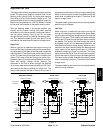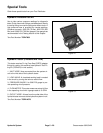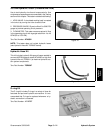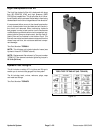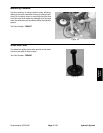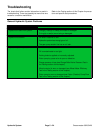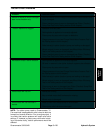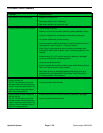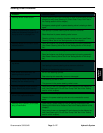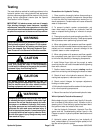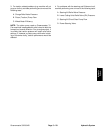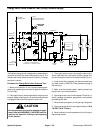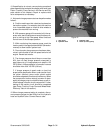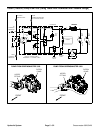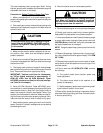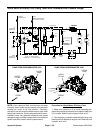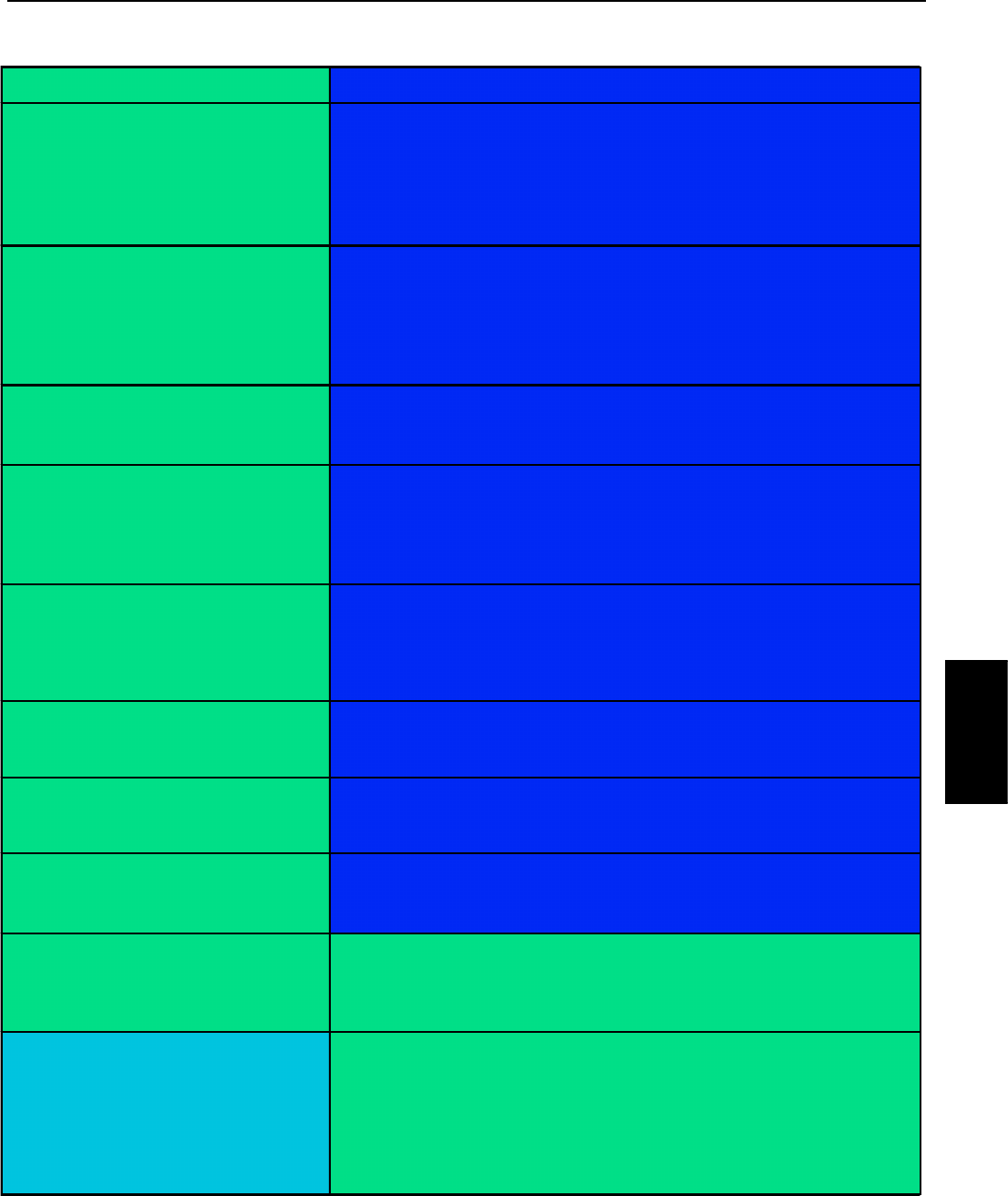
Greensmaster 3320/3420 Hydraulic SystemPage 5 -- 27
Steering Circuit Problems
Problem Possible Cause
Steering wheel is hard to turn. Power steering valve has insufficient oil f low (lift and charge circuits
affected as well) (see Steering/Lift Circuit Gear Pump Flow Test in
the Testing section of this chapter).
Emergency steering ball in power steering valve is missing or dam-
aged.
Regular adjustments to steering
wheel are necessary because of dif-
ficulty to drive in a straight line.
Leaf springs in power steering valve are worn or broken.
Gear wheel set in power steering valve is worn.
Steering cylinder is seized or its piston seals are worn (see Power
Steering Valve Test in the Testing section of this chapter).
Steering wheel will not return to the
neutral position.
Spool and sleeve are sticking to power steering housing assembly
(see Power Steering Valve Test in the Testing section of this chap-
ter).
Steering wheel can turn on its own. Leaf springs in power steering valve are broken or stuck.
Spool and sleeve are sticking to power steering housing assembly
(see Power Steering Valve Test in the Testing section of this chap-
ter).
Backlash results when turning steer-
ing wheel.
Cardan shaft fork in power steering valve is worn or broken.
Leaf springs in power steering valve are worn or broken.
Splines on the steering column are worn.
Rear wheel shimmies when the
steering wheel is turned.
Air is in the steering cylinder.
Rear steering fork assembly is worn or damaged.
Thesteeringwheelcanbeturned
without the rear wheel turning.
The steering cylinder is worn.
The gear set in the power steering valve is worn.
Steering response is too slow and
heavywhentryingtoturnquickly.
Gear pump is worn or damaged (lift and charge circuits affected as
well) (see Steering/Lift Circuit Gear Pump Flow Test in the Testing
section of this chapter).
Turning steering wheel turns ma-
chine in the opposite direction.
Hoses to the steering cylinder are reversed.
Hoses to the power steering valve are not connected to correct
ports.
Steering force (possibly to one side
only) is insufficient.
Relief valve in power steering valve is leaking or damaged (see
Steering/Lift Relief Valve Pressure Test in the Testing section of this
chapter).
Gear pump is worn or damaged (lift and charge circuits affected as
well) (see Steering/Lift Circuit Gear Pump Flow Test in the Testing
section of this chapter).
Hydraulic
System



